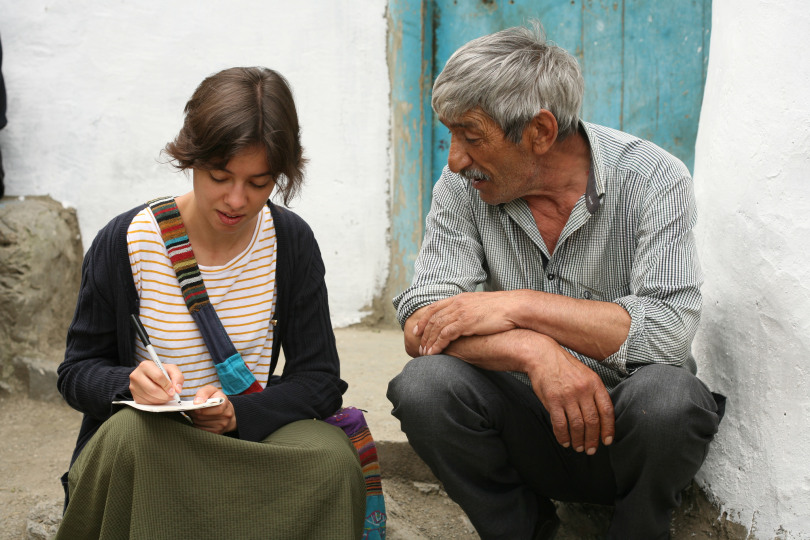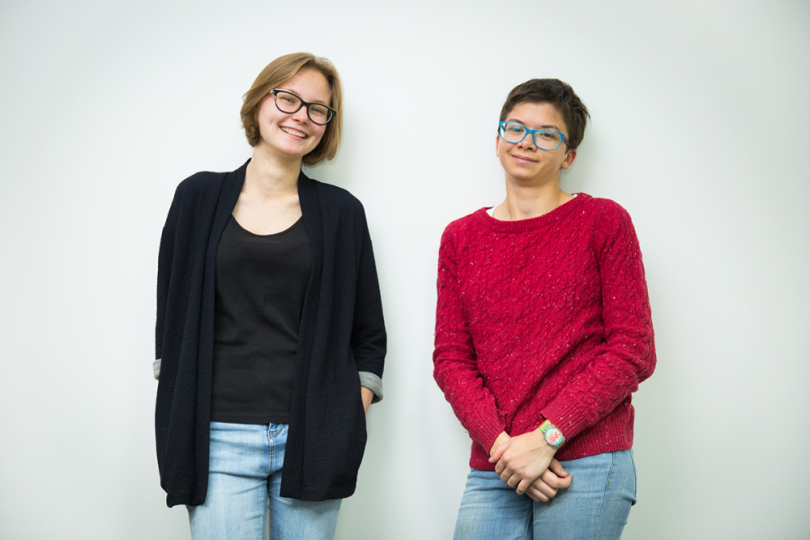Psycholinguists from the HSE Centre for Language and Brain found that when reading, people are not only able to predict specific words, but also words’ grammatical properties, which helps them to read faster. Researchers have also discovered that predictability of words and grammatical features can be successfully modelled with the use of neural networks. The study was published in the journal PLOS ONE.
Why might a grandmother and her grandson not understand each other? Why would linguists want to go to Dagestan? Is it possible to save the less commonly spoken languages of small nations and Russian dialects? Nina Dobrushina, Head of the Linguistic Convergence Laboratory answered these questions in an interview with HSE News Service.
One of HSE’s newest faculty members is Francis Tyers, who will join the School of Linguistics on August 28 as an Assistant Professor. A native of Normanton on Soar, a small village in the south of Nottinghamshire in England, he joins HSE following a postdoctoral fellowship at UiT Norgga árktalaš universitehta in Tromsø in the north of Norway, where he worked on language technology for Russian and the Sámi languages. Prior to that, he completed PhD studies in the Department of Languages and Information Systems at the Universitat d'Alacant in Spain.
Michael Daniel, Professor at the School of Linguistics and Nina Dobrushina, Head of the Linguistic Convergence Laboratory, spoke at Laboratoire Dynamique Du Langage.
Tilmann Reuther, Professor at the University of Klagenfurt, and his colleague Joulia Köstenbaumer talk to the HSE News Service about their experience of cooperation with the School of Linguistics and internships in Austria.
This year HSE has launched a new English-taught MA programme ‘Linguistic Theory and Language Description’, which has evolved from a specialization on the Computer Linguistics programme. Michael Daniel, one of the programme’s Academic Supervisors, told the HSE news service about the multilingual people who will study here, the expeditions the students will go on, and other features of the programme.
The Julius Maximilian University of Würzburg, one of the oldest universities in Germany, hosted a three-day workshop on social network analysis of literary texts conducted by Daniil Skorinkin, Lecturer at the School of Linguistics, and Frank Fischer, Associate Professor at the School.
Is it possible to learn a new language well enough in just two weeks to conduct linguistic research on it? This is an entirely standard practice for linguists, according to Sasha Kozhukhar and Liza Vostokova, both students in the Linguistic Theory and Language Description master’s programme. This past summer, Sasha and Liza went on an expedition to Guatemala to study Kaqchikel, an indigenous Mayan language.
Is it possible to learn a new language well enough in just two weeks to conduct linguistic research on it? This is an entirely standard practice for linguists, according to Sasha Kozhukhar and Liza Vostokova, both students in the Linguistic Theory and Language Description master’s programme. This past summer, Sasha and Liza went on an expedition to Guatemala to study Kaqchikel, an indigenous Mayan language.
What causes variation between languages, and what do they have in common? How is language embedded in our general cognitive system? These are some of the questions that Eric Reuland, Faculty Professor of Language and Cognition at the Utrecht Institute of Linguistics (OTS) (Utrecht University), will address in a lecture course entitled ‘Syntactic approaches to anaphora’ that will be held at HSE Moscow from September 12 till 22, 2016. Professor Reuland recently spoke with the HSE news service about his research interests, his upcoming visit to Moscow, and some books he recommends for those interested in gaining exposure to the field of linguistics.















